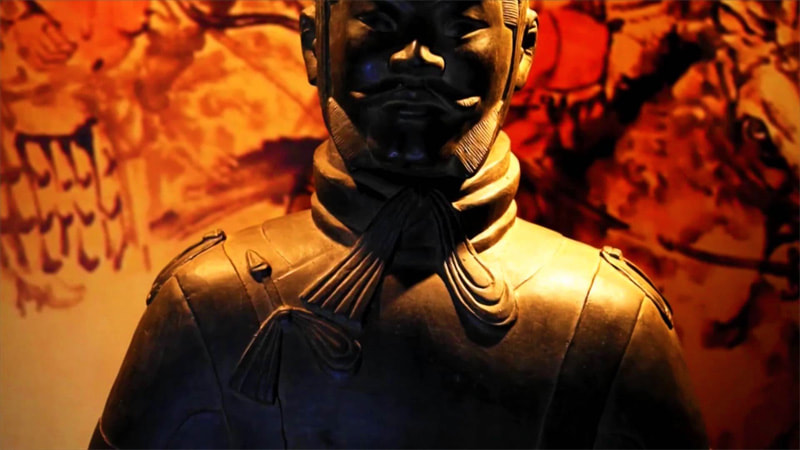"To achieve a hundred victories in a hundred battles is not the highest excellence; to subjugate the enemy's army without doing battle is the highest of excellence ... Winning battles such that the whole world cries 'Excellent!' is not the highest excellence." Sun Tzu
As announced yesterday, we have acquired the domain name NoWar.com, which was originally registered in 1998, a year earlier than when Sonshi.com was founded. I still can't believe how we ended up with the name and can only attribute our luck to the heavens.
The phrase No War has tremendous significance to me because it represents Sun Tzu's ultimate goal and mark of the "highest of excellence." No War also challenges the common notion that war is a viable option. Instead, a war is a sign that things have been poorly managed by those in power.
According to Sun Tzu, a leader must be so adept at handling conflicts that the conditions from which wars get started could never take hold. That is because prevention is his or her focus, when conflicts are easier to manage. This skill requires a keen sensitivity to tackling small issues before they become larger ones.
Leaders can see what others cannot, and thus can do what others cannot. If problems are such that everyone can see them, then that is when we know the people in power have failed the organization, community, or nation. A small problem solved clumsily is vastly superior to a big problem solved efficiently. (Imagine how much more costly if large problems are mishandled!)
Therefore, the wise understand that there is no glory in fighting a war. To the general populace, however, there is no glory in preventing a war either, for they can't possibly fathom what never transpired. That's ok, because students of Sun Tzu can't possibly fathom doing anything different regardless. The benefits themselves are good enough.
Thank you so much for your support and confidence through the years.
The phrase No War has tremendous significance to me because it represents Sun Tzu's ultimate goal and mark of the "highest of excellence." No War also challenges the common notion that war is a viable option. Instead, a war is a sign that things have been poorly managed by those in power.
According to Sun Tzu, a leader must be so adept at handling conflicts that the conditions from which wars get started could never take hold. That is because prevention is his or her focus, when conflicts are easier to manage. This skill requires a keen sensitivity to tackling small issues before they become larger ones.
Leaders can see what others cannot, and thus can do what others cannot. If problems are such that everyone can see them, then that is when we know the people in power have failed the organization, community, or nation. A small problem solved clumsily is vastly superior to a big problem solved efficiently. (Imagine how much more costly if large problems are mishandled!)
Therefore, the wise understand that there is no glory in fighting a war. To the general populace, however, there is no glory in preventing a war either, for they can't possibly fathom what never transpired. That's ok, because students of Sun Tzu can't possibly fathom doing anything different regardless. The benefits themselves are good enough.
Thank you so much for your support and confidence through the years.
"Blessed are the meek, for they will inherit the earth. Blessed are those who hunger and thirst for righteousness, for they will be filled. Blessed are the merciful, for they will be shown mercy. Blessed are the pure in heart, for they will see God. Blessed are the peacemakers, for they will be called children of God." Jesus








 RSS Feed
RSS Feed